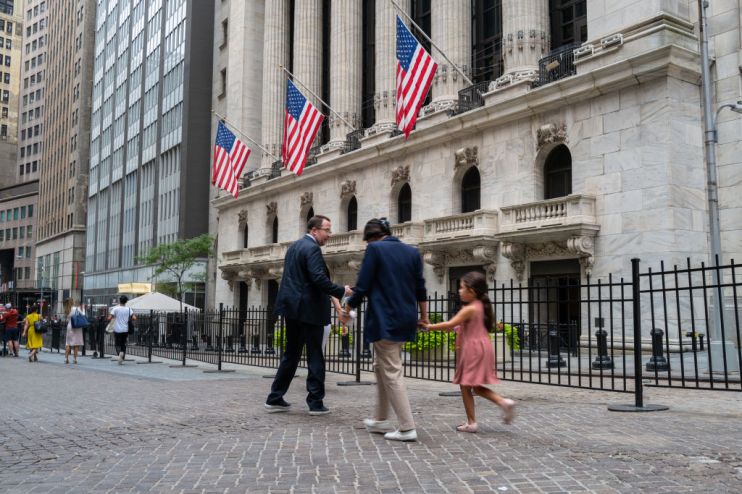Land of milk and honey? Why New York may not be a panacea for UK firms

When second-hand car platform Cazoo announced a shift onto the public markets in 2021, it looked from most angles to be a true-blue British success story.
Just three years after its foundation, this Amazon of old cars would debut on the stock market and pocket its founder Alex Chesterman the multi-million dollar payday most entrepreneurs dream of.
Cazoo sought out the vehicle du jour in 2021 and listed via a merger with a special purpose acquisition company at a blockbuster $8bn valuation.
The bruising caveat to that all, of course, was that it would do so in the US – where high growth firms were just “better understood by investors”.
Cazoo’s move hints at a familiar sentiment floating around the Square Mile this year as London’s markets languish in the doldrums: the promised land may lie across the Atlantic.
A string of bosses have either ditched their listings or threatened to pack their bags for the Big Apple in recent months, with trading platform Plus500 and polling specialist YouGov among the latest firms to fire a threat at London’s staid pool of investors.
The rationale often shows a similar gripe.
“I think that once, or if, we’ll be listed in the US we’ll be valued more,” Plus 500 boss David Zruia said last month.
“I think the markets are better at supporting companies like ours there,” YouGov chair Stephan Shakespeare said the very same day.
However, the later stages of Cazoo’s public market tenure point to a more complex picture for UK firms mulling a New York hub. The used car firm crashed into reality and has plunged more than 99 per cent in value since its IPO. Boss Chesterman stepped down as chief at the beginning of this year.
Others, like Babylon, were wildly hyped when they arrived on the New York markets. Investors felt the pain, though, when the digital health startup’s shares crashed, before a bankruptcy process earlier this summer.
While a deep and more willing investor base may be waiting for some in the US, and US firms do in general trade at better multiples than their UK counterparts, it’s not a universal truth.
“It’s the business fundamentals that matter, right. It’s just not that the grass is greener,” Scott McCubbin, EY’s head of IPO, told City A.M.
“It should always be where are you best to list – that should be the first question. And that isn’t automatically the US. We have seen some valuation stories that haven’t panned out, particularly when you’re a small fish in a big pond,” he said.
The wider list of UK firms in the US paints a similarly troublesome picture. Only 22 UK companies raising over $100m have listed the US in the last 10 years and are on average are trading down 38.1 per cent on their IPO price.
Of those firms, six have already de-listed, 13 are trading down and only three are trading up – one being Manchester United, which yesterday too a hefty battering of its own. Meanwhile, the average price performance of UK issuers who have de-SPAC’d in the US in 2019-2022 is down 89.5 per cent.
Many of the firms to hint at a New York swap this year are run on a far more sound basis than Cazoo, which rode a dual growth-stock and used car bubble before they burst.
But investors are global animals in the modern market and, as Peel Hunt analyst Damindu Jayaweera points out, “high-quality capital will find good-quality companies regardless of listing venue”.
“Markets can of course be a voting machine near term, as opposed to being a weighting machine longer term,” he added.
“This means during times of ‘hype’, the more liquid US market can push valuations higher than any other market, but as was the case post dot-com, and post the more recent Fed-bubble, those valuation bubbles don’t last,” he said.
But in a deepdive on valuations of technology firms across the UK, Europe and US, Peel Hunt found that valuations are “dependent on company performance, and not on the listing venue”.
He points to the tale of UK-listed payment processor Boku as a warning. Boku’s top shareholders include one of the largest US asset managers, Capital Research, one of the largest Nordic asset managers, Danske, and one of the largest private equity firms active in public equity, Vitruvian.
“Arguably, Boku’s US-listed peer, Dlocal, has a lower quality holder list by comparison, as its story is lost among the land of giants like Microsofts and Nvidias. If Dlocal were listed in the UK, it likely would have garnered more attention from higher quality investors,” Jayaweera added.
While a host of firms may have fired barbs at the malaise of London’s markets over the past year, bosses could do well to heed the tales of Boku and Cazoo when looking to New York as the land of milk and honey.